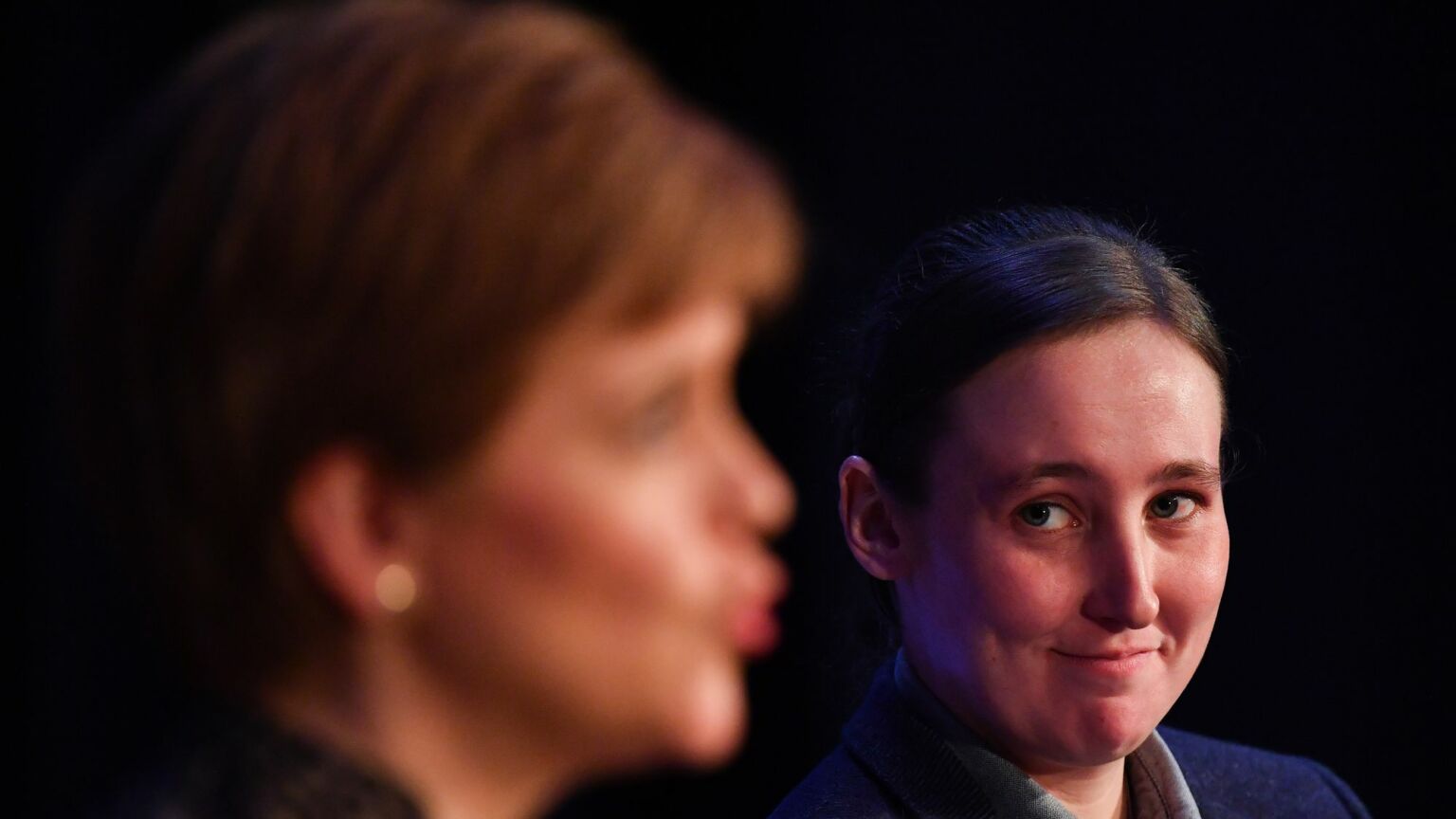The unbearable egotism of Mhairi Black
The outgoing Paisley MP has turned the Commons into a platform for shameless self-promotion.

First Brexit and immigration, now gender ideology and Net Zero. Whatever the issue, the past few years have made clear the gulf between the outlook, values and interests of many MPs and the people they are supposed to represent. Even those who play up a regional accent or performatively smoke and swear turn out to have more in common with the civil servants, journalists and think-tankers who stalk Westminster or Holyrood than with their own constituents. In fact, those who LARP at being ‘outsiders’ are often the most likely to hold every high-status opinion going.
Take the SNP’s outgoing deputy Westminster leader, Mhairi Black. Black seems to think that being ostentatiously foul-mouthed and scornful of parliamentary conventions make her an authentic voice of the people. Yet she also seems to think that turning up at a primary school with a drag queen in tow, presumably to teach the kids a lesson about gender fluidity, is perfectly normal. She pitches herself as both too radical for the House of Commons, giving blustering speeches about the UK ‘sleepwalking’ towards fascism, yet also too sensitive for its ‘unhealthy’ working environment. She has slammed parliament for being ‘toxic’, while having done more than most to lower the tone by substituting personal insults for political debate. Self-awareness, it is fair to say, is not her strong suit.
Black’s lack of self-awareness struck again this week. She told a Times Radio interviewer that she was ‘uncomfortable’ with the ‘cult of personality’ that had surrounded Nicola Sturgeon during her time in office. I, for one, have never associated Scotland’s former first minister with ‘personality’ of any kind. Sturgeon has always struck me as hectoring and charmless. But clearly Black saw something I missed. It turns out that Black is a ‘big believer that politics should be about policy as opposed to personality’ and, for this reason, she welcomed Sturgeon’s departure from office early last year as ‘quite healthy’.
The sheer gall of this statement is quite something, given Black has spent almost a decade turning politics into an arena for self-promotion. For Black, parliament has always been a stage for her to talk about herself. She constantly complains about parliament’s ‘clammy’ rooms, the noisy chimes of Big Ben, the long hours and the need to vote in person. The voice of Black’s constituents always seems secondary to her own personal grievances. Rather than serving voters, Black has always seemed intent on making politics serve her, whether that’s trying to mould Westminster to fit her preferred working habits or, as with the drag queen, using her platform to promote her own niche causes. So for Black to complain about a ‘cult of personality’ in the SNP sounds less like a reasonable political comment and more like sour grapes. Presumably she would have far less problem with personality cults if her own personality were centre-stage.
In any case, Black’s analysis is just plain wrong. It wasn’t Nicola Sturgeon’s personality that caused Scotland’s record drug deaths, falling educational standards, a growing number of babies born addicted to drugs, lower life expectancy and longer hospital waiting lists. It was her policies that were the problem. Women’s rights have been under threat in Scotland not because of Sturgeon’s character, but because of her decision to champion gender self-identification. And the failure of Scottish education wasn’t down to any Cult of Sturgeon, but rather to her determination to push through the disastrous – and ironically named – Curriculum for Excellence. With Sturgeon’s replacement as first minister by Humza Yousaf, the personalities have changed but the appalling policies remain in place.
Scotland may not have been captivated by Sturgeon’s alluring personality. But it is fair to say that, throughout her time in office, there was a reluctance to criticise the SNP’s rule. It wasn’t just elected MPs in Westminster and Holyrood who kept quiet about Sturgeon’s disastrous policies, but also party members, journalists, academics and campaigners. Whereas London’s political establishment is rightly subjected to robust criticism, decisions made north of the border were rarely subjected to the same level of scrutiny.
From the outset of her time in office, Sturgeon herself ensured that this was the case. After former first minister Alex Salmond was accused of sexual harassment back in 2017, Sturgeon was found by a committee to have given an ‘inaccurate account’ regarding a meeting between the two a year later. She then had a spokesperson slam the independent investigating committee’s findings as ‘politically motivated’. When it came to women’s rights, Sturgeon was accused of limiting the time for parliamentary debate so as to avoid challenge to her flagship gender reforms. It’s not a cult of personality surrounding Nicola Sturgeon that has impoverished political debate in Scotland, but her and her party’s shameless authoritarianism.
In all of Mhairi Black’s newfound criticisms of Nicola Sturgeon, there is no hint that Black sees any of those anti-democratic manoeuvres as a concern. She apparently has no issue with stifling debate or riding roughshod over the views of voters. With both Black and Sturgeon soon to be out of the picture, perhaps Scottish voters can finally hope for a politics that puts their needs – rather than politicians’ egos – centre stage.
Joanna Williams is a spiked columnist and author of How Woke Won, which you can order here.
Picture by: Getty.
To enquire about republishing spiked’s content, a right to reply or to request a correction, please contact the managing editor, Viv Regan.










Comments
Want to join the conversation?
Only spiked supporters and patrons, who donate regularly to us, can comment on our articles.